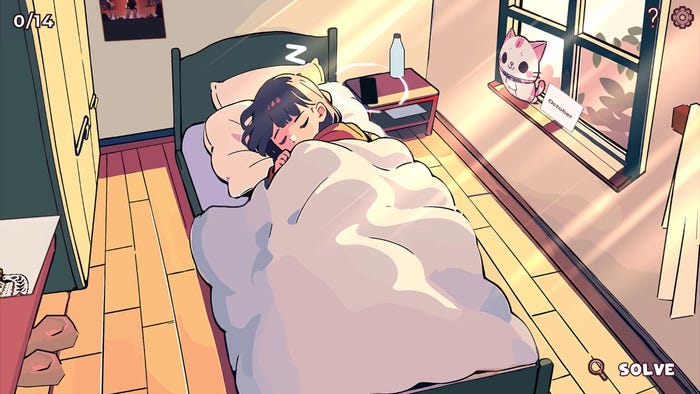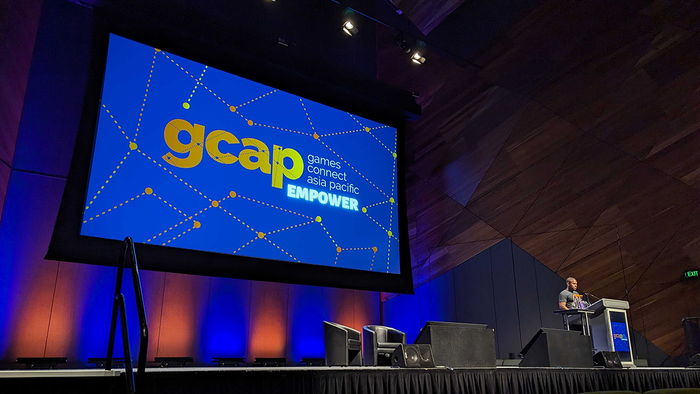Video Game Content Costs Too Much: Solutions
Big ("AAA") video games continue to become more expensive yet shorter, because 3D/complex "content" costs so much. This is a video/screencast discussion of existing, successful alternative ways to inexpensively provide content.

Christian Nutt tells me Gamasutra people respond better when there's a text summary to a video. Here is the text of the slides (which are created with the intention to be intelligible on their own):
Limited “Content” in AAA (and other) Video Games
Dr. Lewis Pulsipher
Pulsiphergames.com
Courses.PulsipherGames.Com
Content = Expense in Video Games
In most video games, as in puzzles, the creator(s) of the game must provide all of the “content” – everything the player(s) can possibly do
When computers were very limited, this was not a problem
One person could provide all the content: programming, “graphics” such as they were, “sound” such as it was
But in the 3D computer age content is much more expensive
Typically more artists than non-artists work on a AAA game
This is why games are getting shorter
Even as AAA games increase in price, they get shorter
Because 3D content (art and programming) simply costs too much
AND now many more players like “open world” games, with lots of possibilities, as opposed to linear games, with strictly limited possibilities
Some content isn’t used
So more content overall is required per minute of actual play
Everything is getting more complicated, with online play
Human opposition
In games with human opposition, the opponent(s) provide much of the “content”
Humans are expert, and unpredictable, and fascinating, in ways computers cannot be
Yet they also provide opportunities for “yomi”, reading the opponent’s intentions, that computers cannot provide (being too predictable)
This is why a person can play a tabletop game hundreds of times yet still see and learn new things
RPGs
Much of video gaming derives from Dungeons & Dragons and other tabletop
RPGs
(Think of “dungeon” levels, experience points and levels, a single avatar per player, distinct episodic adventures, character advancement, loot that increases player capability, and so on)
In these RPGs, there’s human-controlled opposition (by the referee/”DM”), but it’s a co-operative game
Co-op is becoming more and more popular in both tabletop and video games
One solution to the VG content problem
Is, video games use human opposition to provide “content”
EVE Online has been doing this for over a decade
Every player is an independent potential ally or enemy
Players form corporations and alliances, and those larger entities also fight, somewhat like Earth-bound nations do
When video game players play as a team against another team, the human element provides much of the interest, the “content”
Think Team Fortress, Call of Duty, etc.
PvP (Player vs Player)
MOBAs such as League of Legends and DotA2 (DotA was the original, a Warcraft III mod)
The only way to play is in teams of five
World of Tanks isn’t a MOBA, but focuses on team versus team
The way to play is mostly-random teams of 15 vs 15
Clan versus Clan is more or less an RTS that pits players against players
These games are some of the most profitable today, even though “free to play”
A variation – non-dev humans create content
Some games let human players generate new content that is executed by the computer
Such as new levels, scenarios, puzzles
Little Big Planet (PS3) notable early example
New scenarios for Civilization
New levels for Unreal Tournament (Deluxe version provided level editor and many hours of tutorials)
Mods in general (though these are much less numerous because much harder to create)
Procedural generation of content
The computer generates new areas of play
In old-time Dungeons & Dragons you could use the tables in the DM guide to generate dungeons, monsters, magic items – procedural generation
“Roguelikes” have rebounded in popularity in part because they procedurally generate the content
Though that makes it harder on the player: it can get really hard to succeed
MMOs
Typical MMOs: content is created by the developers
And that’s why MMOs are so vastly expensive to create
Even then, some players shoot through all the content very rapidly, then quit – that’s killed the subscription basis
So now most MMOs are “free to play” �– but EVE is not, because it offers more
MMOs
Some MMOs are now going to use procedurally generated content
The problem is, in a typical F2P environment players expect to be continually rewarded. Procedurally-generated content can often be quite hard-to-play content
In MMOs “a player challenged is a player lost” - will players quit?
Conclusion
To reduce the spiraling costs of producing big video games:
Provide human opposition
Via EVE model
Via PvP
Via team play “multiplayer,” MOBA
Procedurally generate content
Let humans generate new content
Read more about:
BlogsAbout the Author(s)
You May Also Like








